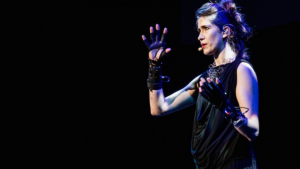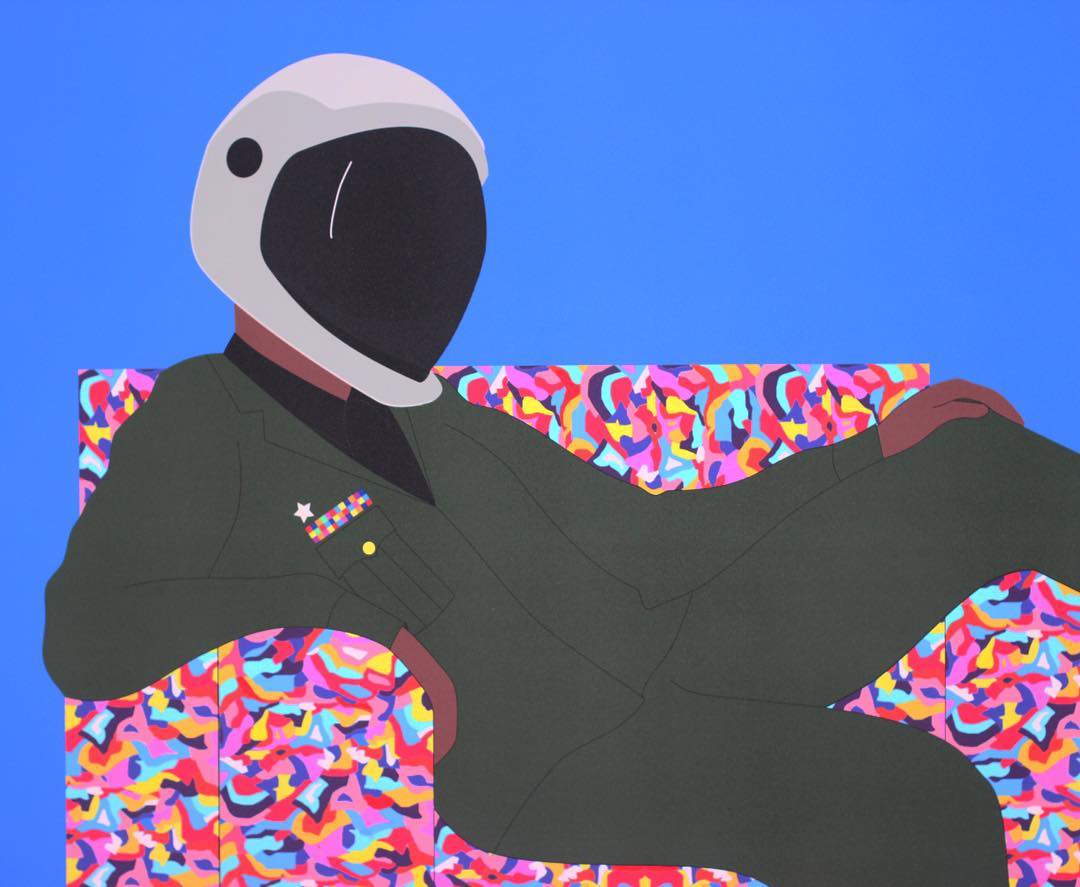
Nigerian mixed-media artist Dennis Osadebe staged his first solo exhibition recently. Titled Remember the Future, it explored the idea of mixing Nigerian traditional materials and crafts with technology and new media. Employing bold colours and playful silhouettes, Osadebe’s bright, expressive and distinctly pop-art style challenges the traditional notions of contemporary African art and poses an interesting question: what does ‘African art’ even mean?
If you were to type ‘African art’ into your browser and hit search, you’d be instantly inundated by hundreds of scholarly articles from western institutions claiming to be able to define the term. You’ll also find thousands of images featuring non-distinct tribespeople, wild animals and African inspired’ patterns. But these works do little but solidify a stereotype and barely begin to explore the vast artistic spirit emanating from the continent.
“What exactly is an African Artist?” Osadebe asks. “Is it someone who grew up in Lagos, with Nigerian parents, studied in Paris and is practising in Canada?“
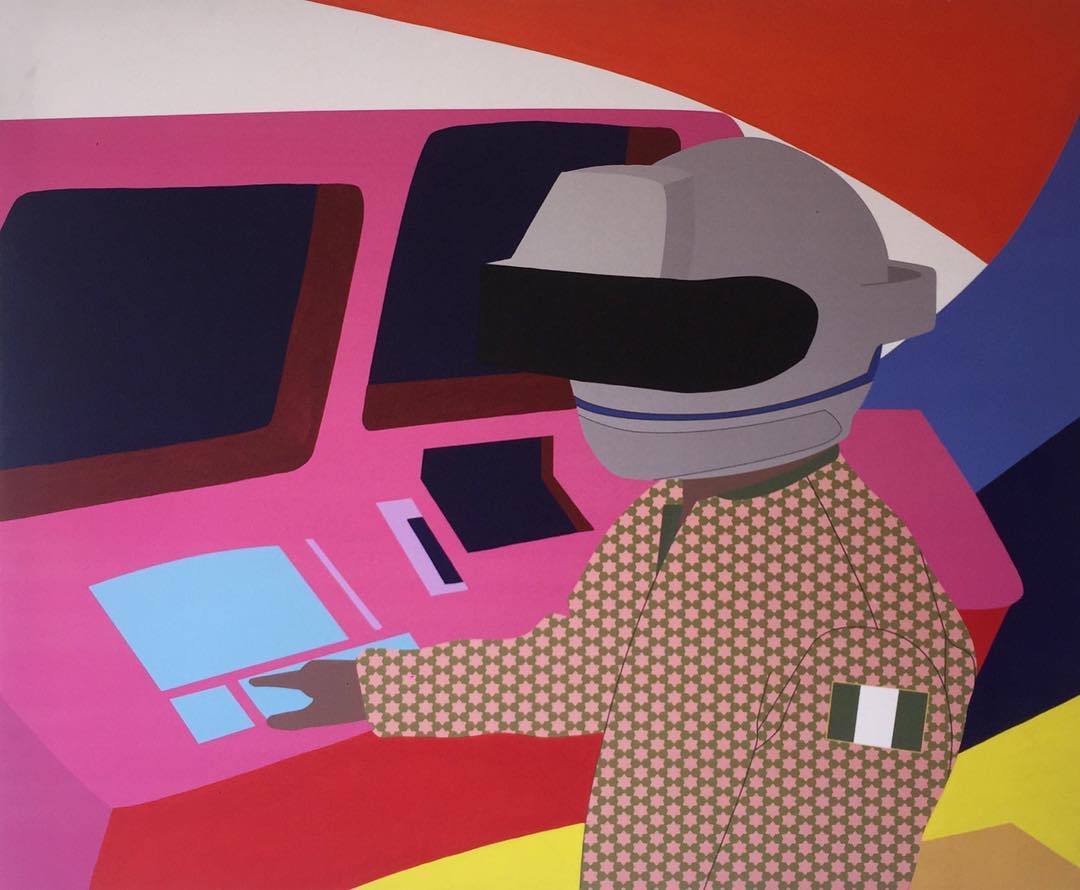
“For art in a whole continent to be limited to just one label – 'African Art' – is a problem,” he continues. “It is not doing justice to the different experiences that a diverse range of artists are facing and expressing in the continent. It is also bad for the stakeholders in the industry, especially with the recognition that art is getting from the continent now. There is no African Art.”
Self-taught and working professionally since 2013, Osadebe has long been frustrated by this limiting label that gets slapped on the work of artists with connections to the continent. It’s a lazy and tired categorisation, one that places unreasonable expectations upon African artists. In response to this, he’s begun to push for the adoption of the term ‘Neo African’.
For Osadebe, this term embraces the idea of deconstructing the notion of contemporary African art while simultaneously questioning exactly what it means. Aware of the types of presumptions that the overused term often places upon artists and consumers, ‘Neo African’, says Osadebe, offers a way to break out of that box and out of the expectations projected onto creators as artists from Africa.
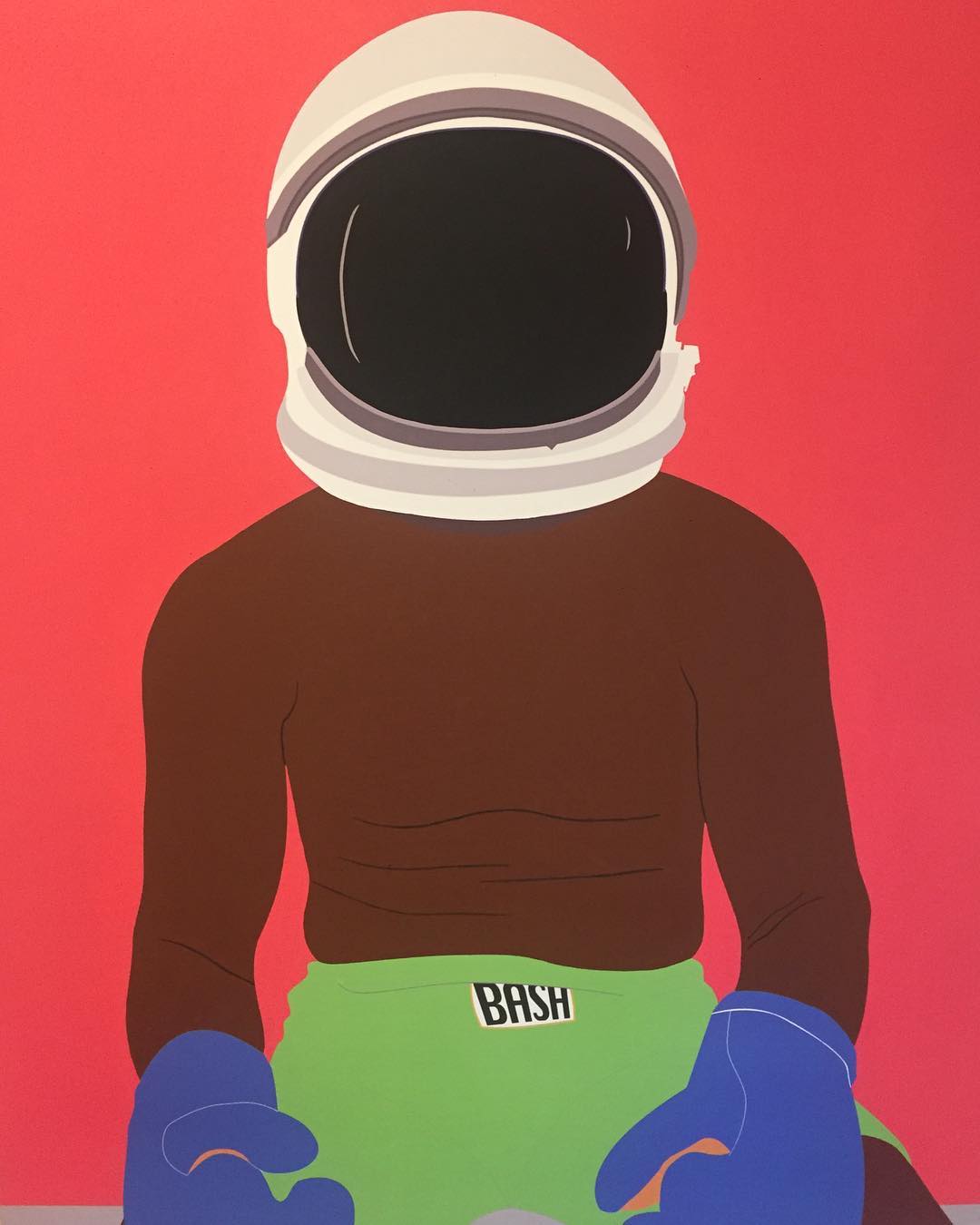
Hugely influenced by the philosophy of modern art – particularly the idea of putting aside traditions of the past in a spirit of experimentation and discovery – as well as the raw energy and non-stop drive of the city of Lagos, Osadebe’s work and artistic style draws upon elements of pop art and graffiti culture. But his subject matter communicates the reality of today’s world and ranges from a dialogue about technology, to politics and religion.
The artwork shown at his Remember the Future exhibition aimed to question the realities of Nigeria’s contemporary society, including those of power, class, and gender whilst suggesting possibilities for the future. A recurring depiction seen in this body of work is the helmet, something Osadebe sees as a symbol of protection, technology and spirituality. In his artwork, he’s placed them atop the heads of ordinary Nigerians as a way of illustrating just how pervasive the impact of technology is in our everyday lives.
“There is also an inherent sense of isolation associated with the helmet,” Osadebe explains, “which parallels the isolation created by the technologies that we consume. As the technologies of our world advance and offer a new level of global connectivity, they also transform our experience and the way we interact with others. We become detached and enter a virtual environment, blocking many of our basic senses.”
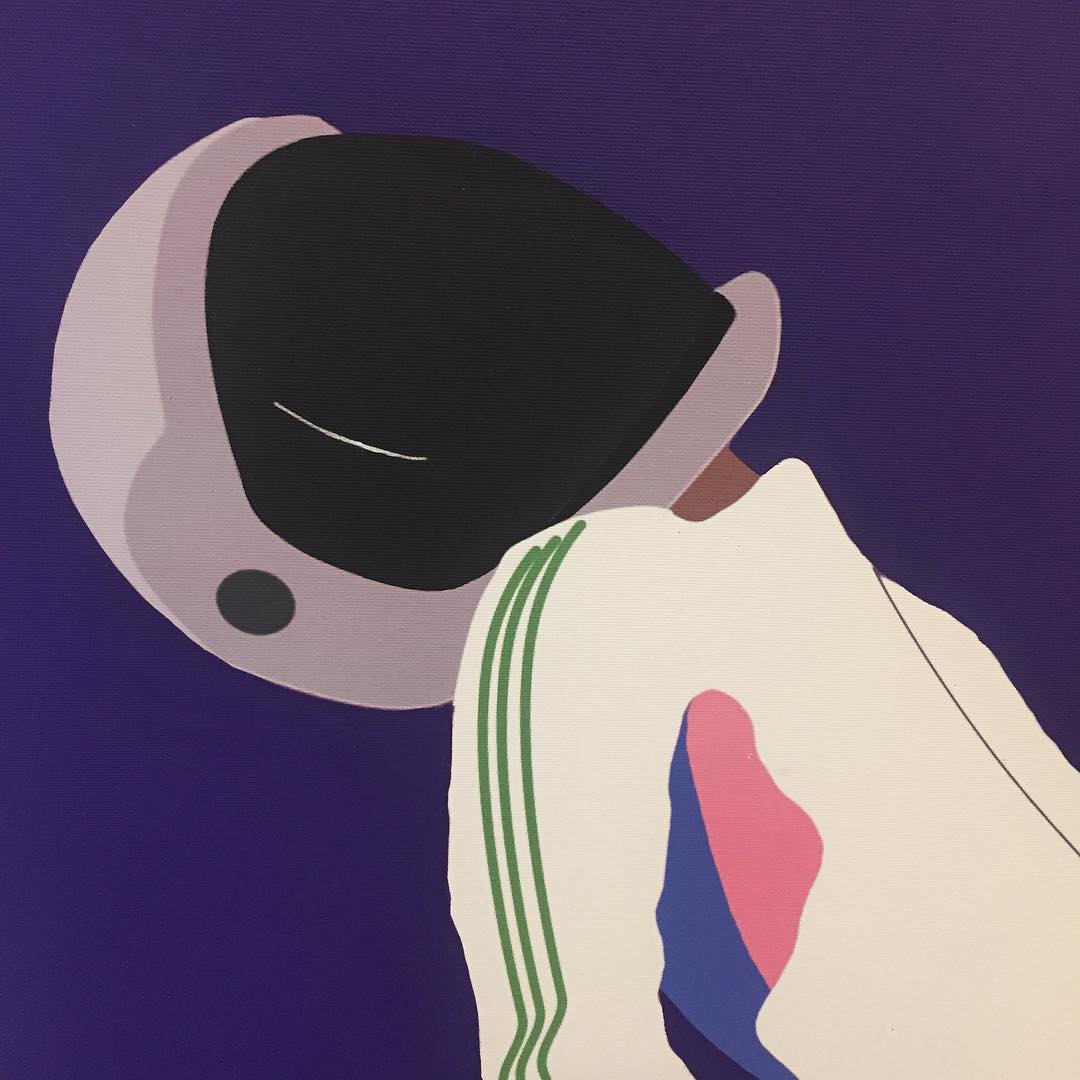
Osadebe’s artistic senses, however, are sharp and he continues to experiment with his style while producing new work. “People often think that the studio is a factory where you manufacture pieces and boom! -present an art exhibition. For me, it is more like a lab where you experiment and an exhibition is a result of several successful experiments.”
Currently in the testing phase of a new artistic experiment, he’s loving the results he says, and we can expect new work from him soon. Until then, you can keep up with Osadebe by following him on Instagram or you can visit his website dennisosadebe.com.






